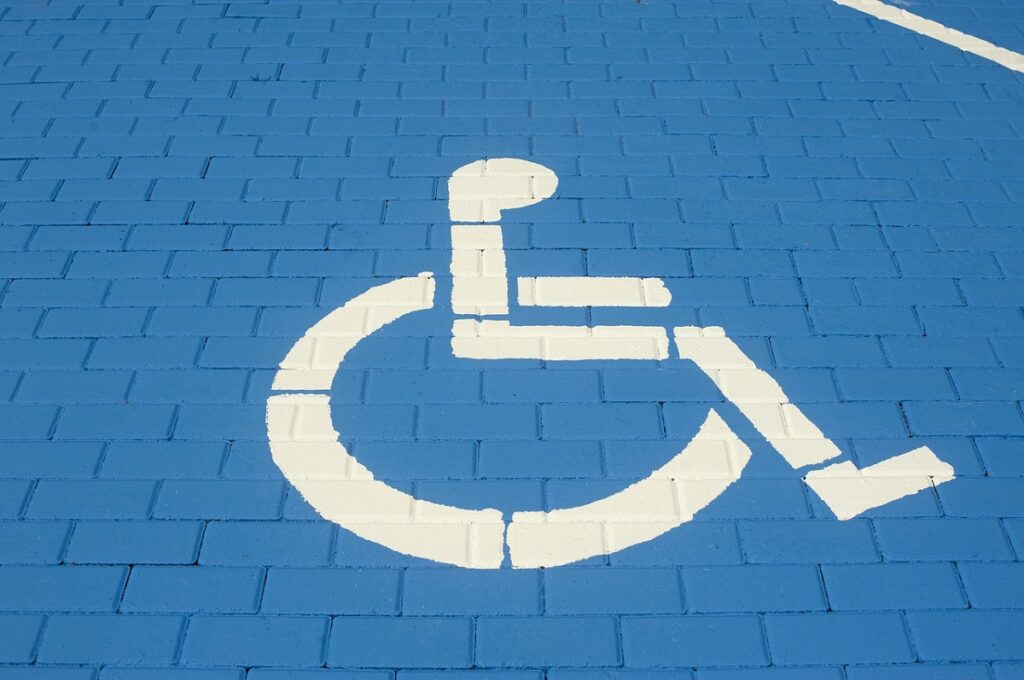For people with disabilities, access to handicap parking is a necessity. It gives people more freedom, access to places that would otherwise prove difficult or impossible to get to, and a decreased level of stress when it comes to performing day-to-day tasks.
Whether you have a temporary disability or a permanent one, knowing the ins and outs of disabled parking laws in 2021 will mean the difference between getting around with ease and running into unnecessary obstacles.
Handicap parking rules and regulations
The current rules and regulations that are in place under the American Disabilities Act came into effect in 2010. They were revised to include both state and local governments when it comes to enforcement. When parking spaces are determined for new construction sites, all projects must meet the standards set out in the ADA and any alterations must suit strict requirements. For existing structures that are government facilities or offer government programs, the rules are a little different, stating that they “need to make sure that people with disabilities can gain access and participate in these activities.”
Private businesses have to make accessibility a non-issue for those with disabilities when it is viable and achievable. All handicap parking spots must be signposted unless the business has four or fewer. On-street parking must also include parking spaces visible throughout the area.
The numbers for handicap parking spaces vary depending on the size of the lot and establishment. For example, in a lot with 1–25 spots, at least two spaces must be designated handicap parking spaces. The spots must be clearly marked for visibility and be as close as possible to the doors of the establishment.

What makes a legal handicap parking space?
For a parking spot to legally qualify as a handicap space, it must adhere to specific measurements. Spaces must be at 96 inches wide for passenger vehicles and 98 inches wide for accessible vans. There must also be an entire space of 60 inches for passenger spots and 96 inches for vans between the handicap spaces where no parking is allowed; this provides enough room for passengers to exit and enter their vehicles with ease.
Those found parking in a handicap spot without a valid disabled parking permit are subject to a fraud charge from police. The guidelines for handicap parking spots are decided federally; however, in the instance that someone is charged for parking in a handicap spot without a permit, the state decides how to enforce and penalize the person responsible.
Handicap placard rules
The first and most important law surrounding handicap placards is this: it is illegal to use someone else’s placard for any reason if they are not in the vehicle. Any improper use of a handicap placard could lead to a minor infraction or a misdemeanor. Fines for such an offense can be steep, and vary state by state. They can range anywhere from $250 to $2500 in some states. If convicted of fraud for using someone else’s placard, a jail sentence of up to six months could be incurred.
Using a handicap placard in another state is a bit of a gray area, because the laws vary from state to state. For some, you may have to acquire a temporary handicap permit to park in a handicap spot in a different state than your own.
Can a handicap placard be used in different cars?
It is not illegal to use a handicap placard in a car that is not your own, or in various different cars, but there are some caveats. If your placard is being used in a vehicle, you must be either driving the car or a passenger in the car. This applies to all vehicles, including rental cars.

Have any laws changed for 2021?
The laws for disabled parking have typically remain unchanged in the last year. However, many states have begun cracking down on people who use handicap parking spaces incorrectly or illegally.
Disabled parking spots are essential requirements for people with disabilities. Knowing what is expected of you as a disabled driver or passenger, and what rights you have as the holder of a handicap placard, is vital in ensuring that you adhere to the laws regarding disabled parking in 2021. If you do not have a handicap placard, you can obtain one through telemedicine.
Featured image by AndrzejRembowski on Pixabay
